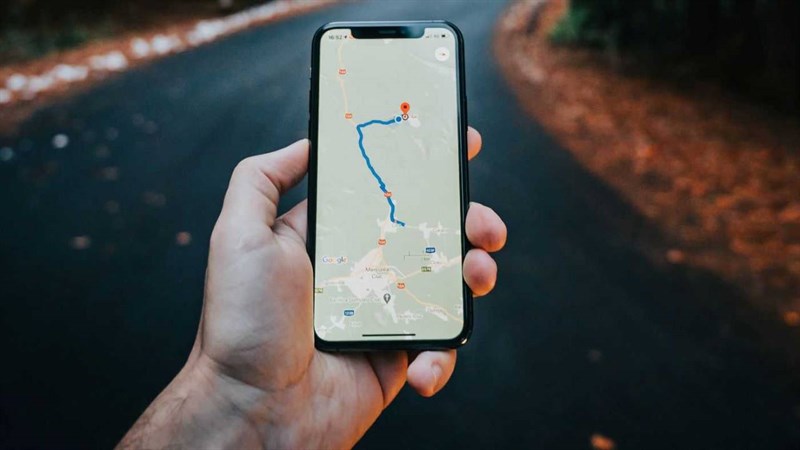Do you remember the last time you had to book a hotel? I sure do. Like most other travelers, I’m bound to search for a hotel based on the area that I’m visiting. For example, if I’m going to Las Vegas, I’m going to search for hotels near the Las Vegas Strip.
It’s fairly intuitive. People don’t book hotels hours away from where they want to visit. That’s exactly why local SEO matters. Hotels are a local-oriented industry where your location is the primary decision-making factor for guests.
Investing in local SEO for hotels will help boost your search engine results by helping your venue rank for your neighborhood, city, state, and county. So, let’s talk about what you need to know.
What is local hotel SEO, and is it worth it?
Local SEO for hotels is the act of gearing your site to rank high for local searches. In other words, it’s a form of SEO that specializes in targeting keywords specific to your location.
For example, regular SEO would search for “hotels that have a pool” or “best hotels of 2023.” Local hotel SEO would target key phrases such as “hotels near Atlantic City,” “best resorts in Virginia,” or “family-friendly hotels in Atlanta.”
If you own a hotel, local SEO is absolutely, positively one of the best investments that you can make. It’s worth it because people who want to book hotels will always search by location. Local SEO is all about making your location work for you.

Benefits of local SEO
You might be wondering about how local SEO can work for you. The truth is, it works very well. Here’s why:
- Local SEO focuses on locations, which are naturally more low-competition than generic keywords. Everyone searches for hotels from time to time. Not everyone will search for hotels in your particular area. Since the pool of hotels and searchers are both smaller, you get less competition for those keywords. This leads to faster-than-average results.
- It’s the easiest way to gear your site toward people who want to book a room. People book rooms by location, so it’s important to emphasize that.
- You don’t have to keep paying for ads to rank to the top of Google. If you have good SEO, you’ll be able to be discovered sooner than you think. The results last longer, too!
How to rank your hotel for local keywords
Google Business profile

The biggest (and ideally first) step you’ll make to ranking on a local level is to register your business with Google. You can do this by following this link and registering your business with Google.
You will need to verify your location and ownership of the hotel to get a Google Places slot. Once you’re verified, you can use Google to book rooms on your behalf, show off reviews, and also post photos of the rooms your venue has.
A Google Places page will immediately put your hotel’s information on the front page. It’s vital to get this started ASAP!
General site audit and optimization
A site audit is an automated checkup to see what your site needs to rank for local keywords. You can get this done through a professional SEO company or use a site like Ahrefs to give you an audit.
Your audit will tell you a lot of information, including:
- What keywords should you target
- Your biggest competitors
- How your SEO page ranks compared to others
- How many sites link to your page
- How many visitors do you get
- A quick guide on what your site needs to improve its rankings
UNAP information
UNAP is an acronym you may not have expected to see on here, but it’s one most travelers want to see. It stands for URL, Name, Address, and Phone Number. They are the primary routes people can use to contact you or arrive at your hotel.
Your UNAP information should already be on your Google Places page as well as on the bottom of every webpage your site has. If your site has a contact page, your information should be proudly displayed there.
Optimize for “Near Me” Searches
GoGulf recently noted that 46 percent of all Google searches are looking for local information. This is a much higher percentage if you’re in the hotel and hospitality industries. Another study showed that 88 percent of people who search for services and venues “near me” will visit it within 24 hours.
As a result, registering with Google and making your address prominent is vital. Google Places automatically filters results based on the verified address of your business. However, adding the right keywords can also make it easier for you to get those results fast.
Highlight the hotel’s attributes
Every hotel has attributes that make it attractive to people. Sometimes, the biggest draw is the budget or the fact that you can pay for a three-hour nap. Other times, it could be a pool, a family-friendly atmosphere, or close proximity to specific areas of town.
If you are doing SEO, you must highlight your hotel’s attributes alongside your location. Good examples of targeting keywords with attributes include:
- “Hotels with pools near Bayonne”
- “Hotels close to Sunset Boulevard”
- “Family-friendly resorts in Orange County”
- “Austin hotels with spas”
- “Best romantic hotels in Oregon”
An excellent way to come up with keywords that highlight your attributes is to list every amenity and every descriptive adjective of your hotel.

Provide visuals
Hotels aren’t just booked for low prices or proximity. You also need to make sure they look good. Photos of your venue are a must, especially good ones. Visuals can be used to do several things for your SEO game:
- They can be named in a way that brings people back to your site. There are SEO-friendly ways to name files. A good example would be “the-algonquin-hotel-ny-bathroom.jpg.”
- Visuals and photos posted to your Google Places and Yelp accounts can help you gain priority over those that don’t. Search engines love entries that are photo-heavy. You might as well use that to your advantage.
- They also help others see what you offer on social media. A picture is worth a thousand words, especially when it comes to content. While user-generated content is also important, you’re going to have to be the person who starts that movement first.
Manage reviews
Local SEO, particularly when it comes to Google Places and review sites, tends to prioritize companies that respond to reviews. Though you may think that no response is always a good response, this is not the case.
Positive reviews should be replied to with a quick thanks. Negative reviews should involve a professional, caring reply that encourages them to reach out to you to see how you can make it right. Activity is critical on review sites.
Active outreach
Did you know that news outlets are looking for a good, uplifting story? If you approach them the right way, you can get your hotel featured in local news outlets. Emailing journalists, participating in HARO pitches, and even offering special rates for visiting journalists can help.
Keyword research
Keyword research is a must, and truthfully, this is something that should happen sooner rather than later. Google AdWords is an excellent tool for this, but you can also use Ahrefs or SurferSEO if you prefer.
Your keyword research aims to find high-volume, low-competition keywords that match what your potential clients would search for. This includes keywords related to your neighborhood, state, city, and county and keywords related to your hotel attributes.
Link to Local Attractions
Building links is a great way to add more “juice” to your SEO game. Most of the time, people add links between different site pages. They also use outreach to get links to their site since it can help build site authority.
However, linking goes both ways. Your site should have links to reliable local attractions. Researching your area’s local parks, top-rated restaurants, and theaters will help you build up a list of good outbound links.

Adding content for local keywords
Now that you have local keywords from your keyword research and local attractions, it’s important actually to make content geared toward it. Blog posts, social media posts, images, and videos can all be optimized toward local keywords.
58 percent of all companies don’t optimize their content for a local search. By optimizing for your locality, that puts you ahead of the game. Content is king, so make sure you have tons of content to boost that optimization.
Schema markup
Schema markups are a term that casual SEO users might need to be made aware of. This is a piece of code that you can add to your site that identifies your site as a site for a hotel. Adding this code to the HTML of each page will identify your hotel as a local business.
The markup code can also improve your overall specifications. You can narrow the business type down, offer a price range, and also mention any special notes using this code. It’s really neat stuff.
Your schema markup code can link to your Google Places page on Google. This makes it a great way to encourage people to find you immediately—ideally while knocking your competition out of the park.
Monitor performance regularly
Part of local SEO for hotels deals with monitoring your performance. After all, Rome wasn’t built in a day. High website authority wasn’t built in a day, either. Monitoring performance is fairly easy to do. You have to do an entire site audit once every month to see your site’s overall trends.
Consult with Professionals
Is this a lot of work for you? You’re not alone. Most people find local SEO to be pretty exhausting. It’s an ongoing issue. That’s why most people reach out to a company specializing in local SEO for hotels when they want to maintain it.

Request a Custom SEO Analysis
no Risk, No Commitment
FAQs
Is local SEO for hotels different from other sectors?
Local SEO for hotels is relatively similar to other sectors, but there are some significant differences:
- You will have most of your localized results from Google Places and its counterpart, Google Maps. Most people will find hotels through local search results and will drive to them via Google Maps.
- Reviews and user-generated content will matter more in a hotel than in other sectors. Industrial sectors, such as manufacturing and logistics, rarely have reviews considered.
- Getting outside links from respected travel blogs will significantly help your SEO authority. Few industries require as much press outreach as hotels, especially locally.
How do you promote your hotel on Google?
The easiest way to promote your hotel on Google is to work on your local SEO efforts—including social media posting, active press outreach, and keyword-oriented blog posts. However, that’s not the only way to go about this.
Many hotels also promote themselves on Google by signing up for major review sites like Yelp and TripAdvisor. When in doubt, having a paid advertising campaign can always work wonders at getting attention to your site.


